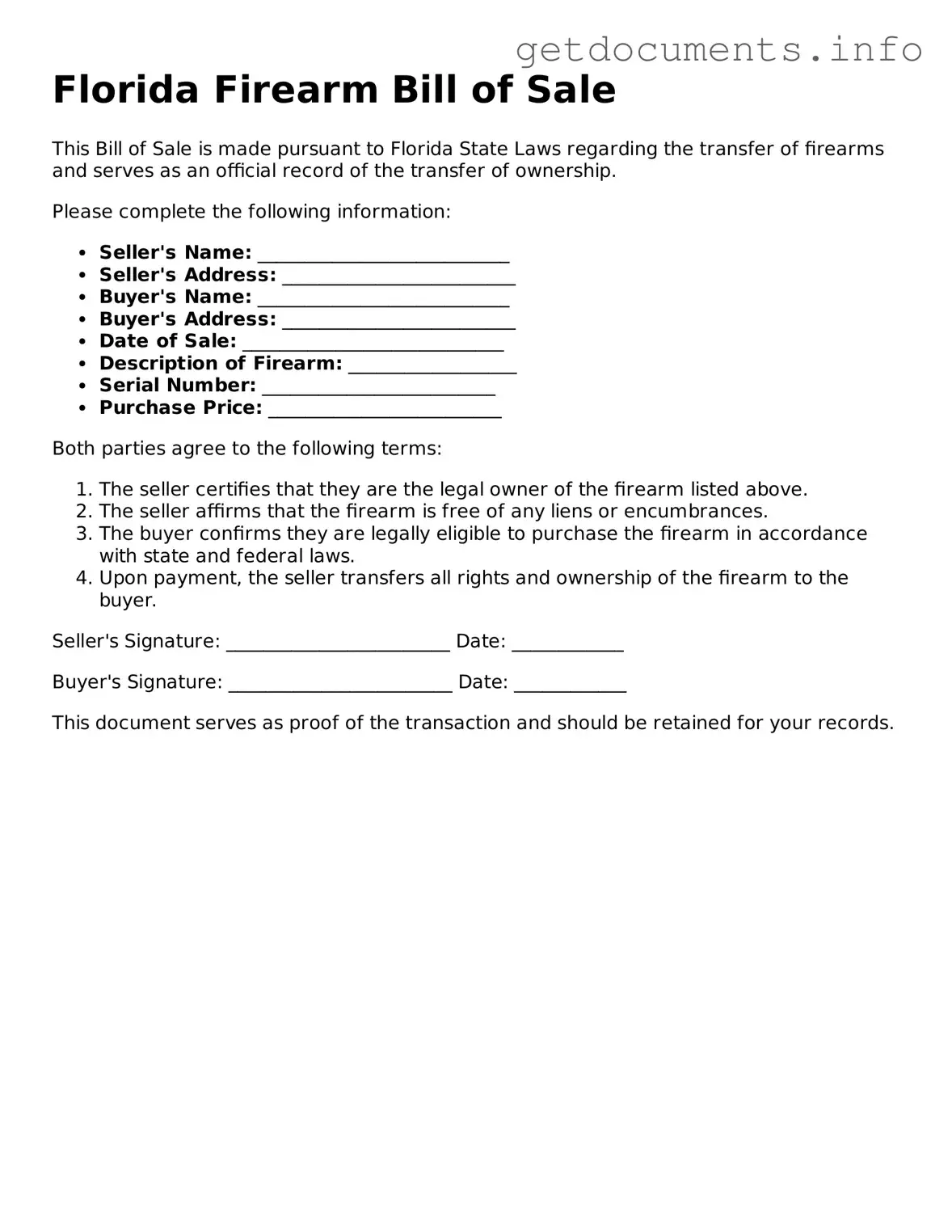Free Firearm Bill of Sale Template for Florida
The Florida Firearm Bill of Sale form is a crucial document that facilitates the legal transfer of ownership for firearms between individuals in the state of Florida. This form serves as proof of the transaction, ensuring that both parties are protected under state law. Understanding how to properly fill out this form is essential for anyone involved in buying or selling a firearm in Florida.
Ready to complete your firearm transaction? Fill out the form by clicking the button below!
Access Firearm Bill of Sale Editor

Free Firearm Bill of Sale Template for Florida
Access Firearm Bill of Sale Editor
Got places to be? Complete the form fast
Fill out Firearm Bill of Sale online and avoid printing or scanning.
Access Firearm Bill of Sale Editor
or
⇩ PDF File
